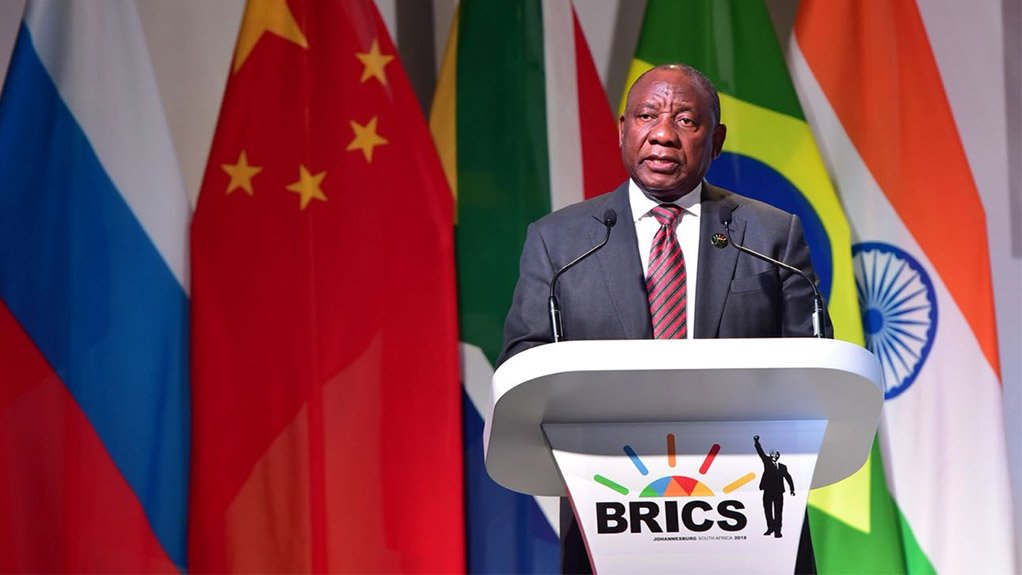While the alliterative theme of this year’s BRICS Summit is “cooperation for continuity, consolidation and consensus”, conversations are likely to be dominated by the Covid-19 pandemic, security and Afghanistan.
For the second year running, Thursday’s annual gathering of the world’s leading emerging economies – including Brazil, Russia, India, China, and South Africa (comprising the acronym BRICS) – will be held virtually due to the pandemic.
The summit will be chaired by India’s Prime Minister Narendra Modi. Brazil’s President Jair Bolsonaro is slated to attend, along with President Xi Jinping of China, Russian President Vladimir Putin, and South Africa’s President Cyril Ramaphosa.
The attendance of Xi, who is selective about his appearances, is especially significant.
“China is sending a signal that it is still pursuing a multi-polar world,” Ian Johnson, senior fellow for China studies at the Council on Foreign Relations, told Al Jazeera. “It’s also part of China’s continuing foreign policy to water down US influence in the world by pursuing other groupings of countries, such as BRICS.”
Crises old and new
The first BRIC summit was held in Russia in 2009. Born in the shadow of the global financial crisis, the gathering – which added South Africa a year later, along with an “S” in its acronym – aimed to pool the burgeoning power of the world’s leading emerging economies to the benefit of each member and to spur global financial reform.
Today, the BRICS nations account for roughly a quarter of global gross domestic product (GDP).
Like their developed-economy counterparts, BRICS members are still grappling with the economic fallout of the Covid-19 pandemic. But the recovery among them is far from equal, and all face headwinds from virus-related disruptions.
China – the world’s second-largest economy – has been bouncing back strongly from last year’s Covid-19 blow. The most recent bit of good news arrived on Tuesday when government data showed that exports grew at a faster-than-expected pace last month.
India, which suffered a devastating second wave of Covid-19 earlier this year, is on track to mount the world’s fastest growth by year’s end, while Russia’s economy has recovered to pre-pandemic strength.
Brazil and South Africa are the group’s laggards. Brazil’s economy shrank unexpectedly in the three months ending in June, and political unrest is further muddying the outlook. South Africa’s economy grew 1.2 percent in the second quarter, but a contraction is expected in the third quarter after deadly riots swept the nation.
“In some ways, the BRICS group has been receiving a declining amount of attention over time since its formation,” Miles Kahler, senior fellow for global governance at the Council on Foreign Relations, told Al Jazeera. “Since well before the Covid pandemic, quite a number of economies have had serious problems.”
Afghanistan
While there is much to be gained from mutual cooperation, the relationships between the five BRICS nations are marked by shifting alliances and diverging strategic interests – especially where Afghanistan is concerned.
“Clearly the big regional issue is Afghanistan,” said Kahler. “It will be very interesting to see if the meeting has any positive value in coordinating their policies with Afghanistan now dominated by the Taliban.”
But cooperation could prove difficult.
“It’s hard to come to an agreement on something like Afghanistan,” said Johnson. “They [BRICS nations] share an interest in not having extremism take root in Afghanistan as it did prior to 9/11. That would unify them, but beyond that, they have different interests.”
China’s biggest worry in Afghanistan, say analysts, is the potential for a security vacuum to cause trouble within its own borders.
“China has a border with Afghanistan and is probably most concerned and has the most at stake,” said Johnson.
Beijing also has potentially beneficial economic ties it could deepen and develop with the new Taliban government, such as the mining and extraction of Afghanistan’s mineral deposits, including rare earth minerals that are vital to high-tech manufacturing.
Though India’s foreign ministry did not specify what regional issues will be addressed at the summit, with India’s National Security Adviser Ajit Doval in attendance, it is anticipated that Afghanistan will top its agenda.
India supported the former United States-backed Afghan government, while its rival and neighbour Pakistan has more of a relationship with the Taliban, making the stakes higher for New Delhi.
On Wednesday, just hours after the Taliban announced its new caretaker government, Doval met with his Russian counterpart General Nikolai Patrushev to discuss the situation in Afghanistan, according to Indian media reports.
India is warning that Afghanistan could become a haven for armed fighter groups. It is especially worried about the situation in Kashmir, a majority-Muslim region it administers only part of, where a rebellion has been brewing for years.
India is also a member of the Quadrilateral Security Dialogue, or “quad”, along with Australia, Japan and the US – which is increasingly concerned about China’s behaviour.
“That doesn’t make it easy or as easy for them to cooperate in the BRICS framework or any other framework,” said Kahler.
Tensions are also still simmering between China and India over border clashes this past winter. The violence may have ceased for now, but it still looks like more of an unsteady détente than a hard commitment to peaceful non-combative resolutions, say analysts.
EMAIL THIS ARTICLE SAVE THIS ARTICLE
To subscribe email subscriptions@creamermedia.co.za or click here
To advertise email advertising@creamermedia.co.za or click here











